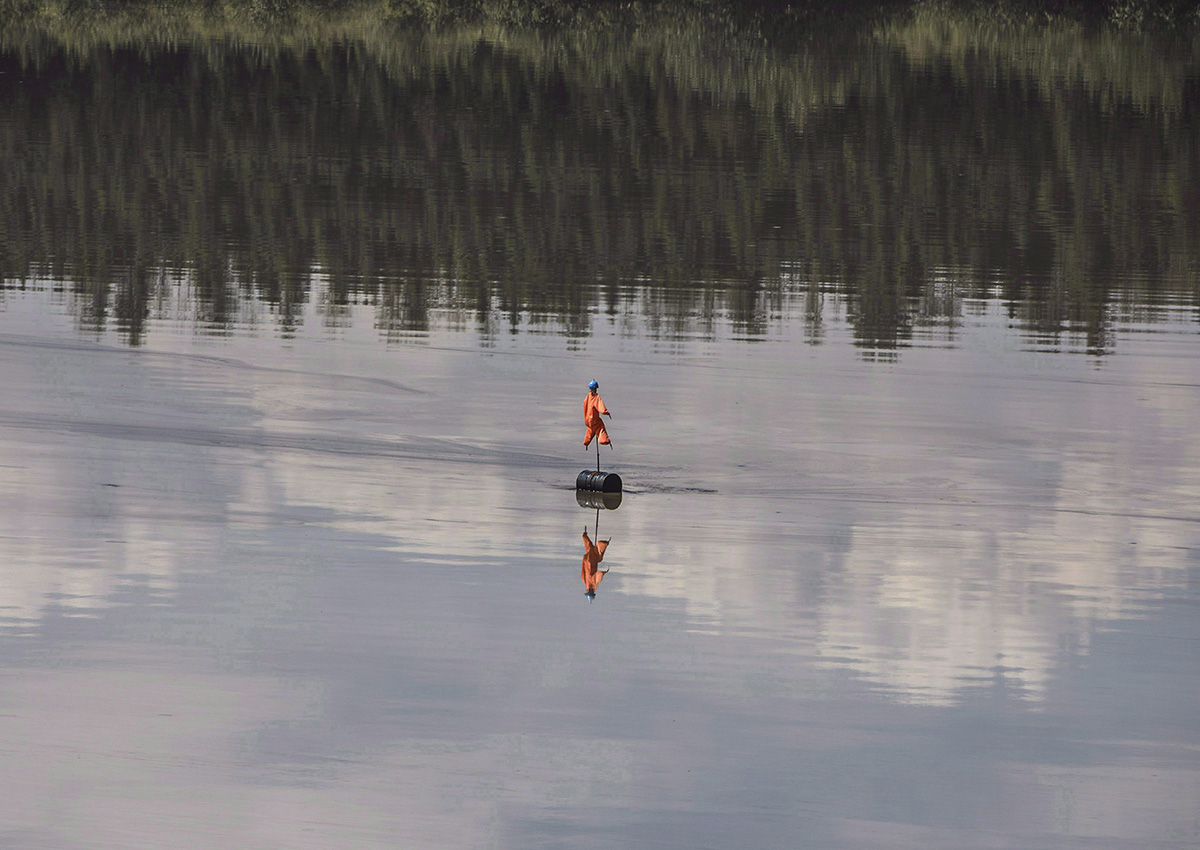EDMONTON – The Canadian government says it lacked the scientific evidence to determine if oilsands tailings ponds were leaking into waterways and hurting fish.

But the government says it continues to work on methods to determine if chemicals associated with bitumen in groundwater are natural, or the result of industry.
The government has provided a response to a call from the environmental arm of NAFTA to explain what Canada is doing to stop oilsands tailings ponds from leaking into Alberta waterways.
READ MORE: Mount Polley tailings pond spill won’t result in provincial charges

The document was submitted to the Commission for Environmental Co-operation on Friday night.
It says the federal government conducted “proactive enforcement activities” at various tailings ponds between 2009 and 2014.
But it states it’s difficult to know the difference between naturally caused and human-caused sources of bitumen and investigators lacked reasonable grounds to think there were violations.
The federal government says as a result, it redirected resources away from the inspections and focused on enforcement in other areas.
WATCH: Wade Davis calls to end of wet tailings ponds
The government says it’s still working to develop scientific tools for future investigations and that significant advancements have been made since 2014.
Environment Minister Catherine McKenna said in a release that her department is working with all of the concerned parties to ensure “we use the best available science and technology in environmental monitoring of oil sands development.”
READ MORE: Alberta Energy Regulator OKs Suncor’s plan for managing tailings ponds
The commission requested the response in August following allegations by Canada’s Environmental Defence group and the Natural Resources Defense Council based in the United States.
The groups argued Canada was failing to enforce the Fisheries Act by allowing contaminants from the ponds to leak into water without forcing the companies involved to fix the problem.
NAFTA’s environment annex allows non-governmental organizations and citizens of the three countries to submit complaints if they feel that environmental laws and regulations are not being enforced.
WATCH: Alberta’s tailings ponds plans
The commission will determine whether to produce a public factual record of the matter. That record does not include recommendations or conclusions.
The tailings ponds contain toxic materials including bitumen, naphthenic acids, cyanide, and heavy metals. Research suggests they are leaching into groundwater.
READ MORE: Coal mine fined $3.5M for 2013 spill that contaminated Alberta river system
Dale Marshall of Environmental Defence called the federal response “weak and disappointing,” noting that a peer reviewed study published in 2014 by government scientists showed elevated concentrations of chemicals in the Athabasca River that matched the chemical fingerprint of tailings ponds.
“It seems to me there’s a pretty strong case that those toxic chemicals from tailings ponds are ending up in fish-bearing waters and therefore it is a violation of the Fisheries Act,” Marshall said in an interview from Ottawa on Saturday.
A previous submission the groups made to the commission was rejected due to a court challenge underway in Canada about the same thing, which disqualifies a complaint under the environment agreement.
That court challenge was ultimately thrown out by an Alberta judge.



Comments